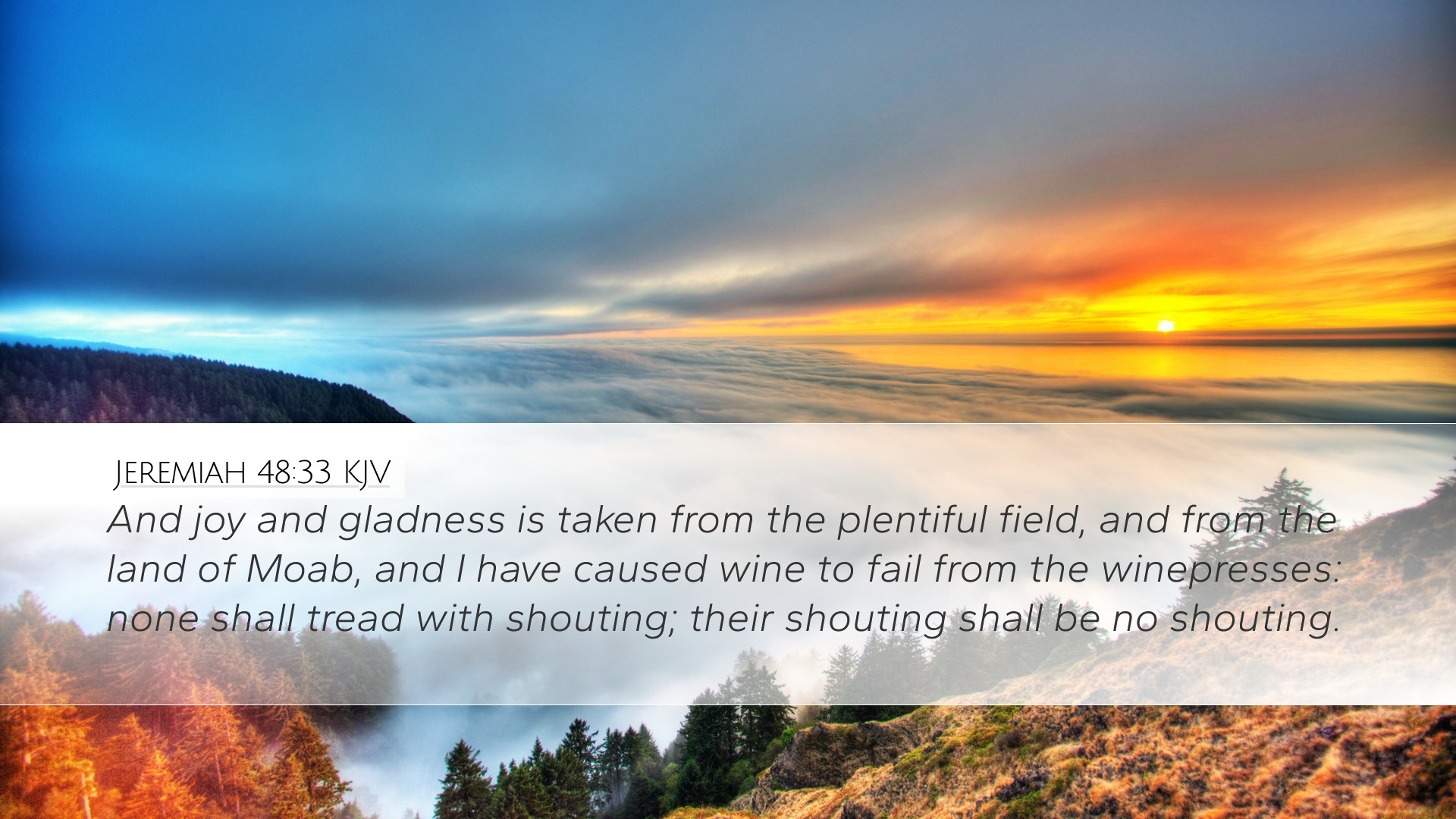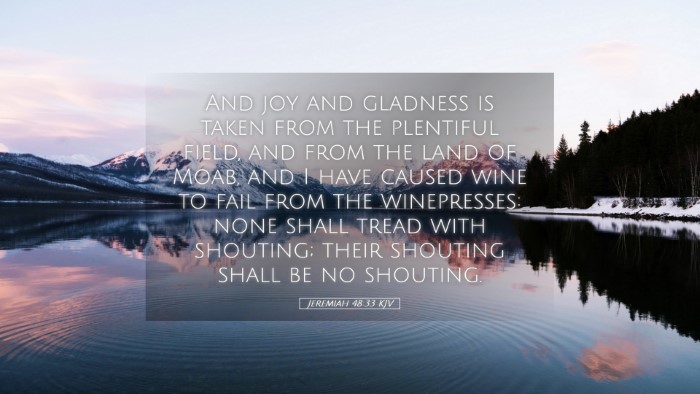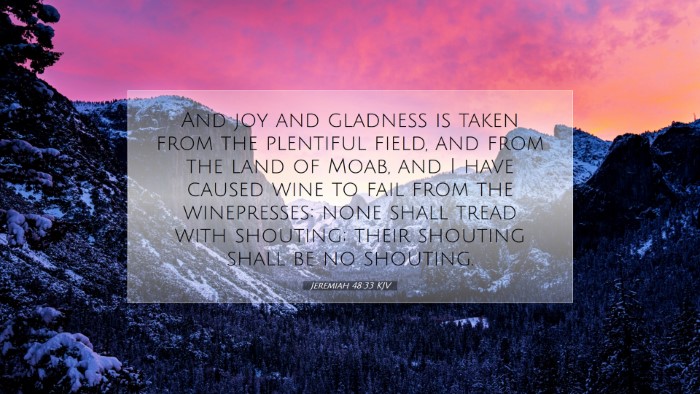Commentary on Jeremiah 48:33
Verse Reference: Jeremiah 48:33 - "And joy and gladness is taken from the plentiful field, and from the land of Moab; and I have caused wine to fail from the winepresses: none shall tread with shouting; their shouting shall be no shouting."
Introduction
The verse under consideration is part of the prophecy against Moab, a nation frequently in conflict with Israel. This commentary aims to unravel the profound truths embedded in this scripture using insights from public domain commentaries by Matthew Henry, Albert Barnes, and Adam Clarke.
Contextual Background
Jeremiah prophesied during a time of great upheaval in Israel and surrounding nations. The nation of Moab, renowned for its vineyards and agricultural prosperity, stands as a symbol of prideful self-sufficiency. However, the impending judgment pronounces a stark reversal of fortune. The context of this passage highlights God’s sovereignty over nations and His ability to bring low those who exalt themselves.
The Condition of Moab
As noted by Clarke, Moab was once a land filled with joy and plenty due to its rich agriculture. However, Jeremiah describes a shift where joy and gladness are stripped from Moab, signifying divine displeasure. Henry further emphasizes that the abundance of crops, once a reason for celebration, will not elicit joy, as the people will face desolation. This can serve as a warning that temporal blessings can quickly turn to curses when nations turn away from God.
The Symbolism of Wine
The imagery of wine in this verse carries significant weight. Winepresses, as Clarke points out, are places of joy where the fruit of labor is celebrated. The cessation of wine signifies a profound loss of communal joy and revelry. In biblical times, wine was not just a beverage; it represented fellowship, prosperity, and divine blessing. Thus, the failure of the winepresses symbolizes a breakdown of the entire socio-economic and spiritual life of Moab.
Loss of Joy and Gladness
Henry observes that with the loss of wine, a people’s laughter is silenced, and communal festivities are brought to an end. This foreshadows an existence devoid of delight, as the people of Moab would not merely suffer from material loss but also from a spiritual void. The verse employs the repetition of the theme of joy to underline how deeply the consequences of divine judgment will impact Moab’s societal fabric.
Theological Implications
This verse presents several theological principles worth pondering within pastoral and scholarly contexts:
- Divine Sovereignty: God rules over nations, and His will presides over their destinies. The fall of Moab serves as an example of divine judgment upon nations that defy Him.
- Transience of Earthly Joy: The great celebration that once characterized Moab was rooted in its earthly blessings. The alarm raised here indicates that joy derived from worldly prosperity is fleeting and can be stripped away.
- Call to Repentance: This prophetic warning is a clarion call for nations and individuals alike, beckoning a return to righteousness to avert the loss of joy and community.
Application for Readers
For pastors and theologians, Jeremiah 48:33 is a vital reminder of the necessity of holiness and dependency on God. The implications of this passage lead to the following considerations:
- Evaluation of Joy: Believers should assess where true joy is derived. Is it rooted in earthly success or in the spiritual riches found in Christ?
- Witness to a Watching World: The state of Moab presents a picture of what happens when nations forsake God. As a Christian community, it is essential to be a light that testifies to the joy that comes from authentic faith.
- Engagement in Prayer: Understanding the nature of God's judgment should drive Christians to prayer for nations, including their own, seeking mercy and restoration.
Conclusion
Jeremiah 48:33 encapsulates a powerful message filled with warnings and reflections on the nature of God’s judgment. Through the insights of Henry, Barnes, and Clarke, we see the broad implications of loss and the fragility of human joy in the face of divine authority. This passage not only appeals to the historical context of Moab, but it also serves as a timeless reminder for modern believers about the seriousness of maintaining relationship with God amidst abundant blessings.


